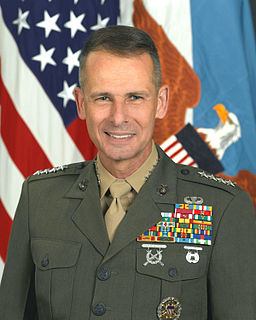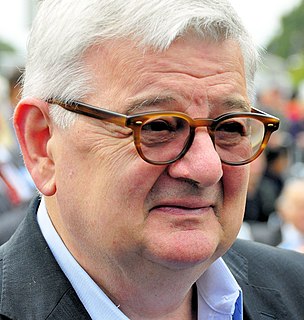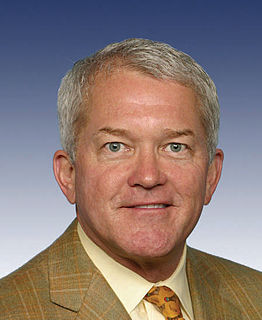A Quote by James W. Loewen
Textbooks should show that neither morality nor immorality can simply be conferred upon us by history. Merely being part of the United States, without regard to our own acts and ideas, does not make us moral or immoral beings. History is more complicated than that.
Related Quotes
We have the - the longest, friendliest border, you know, for the - for the longest time in the history - in recorded history, really, with Canada. And they get to sit on their moral perch, you know, take the moral high ground, say, oh, United States, shame on you about Iraq. They make us look bad internationally. And it's really not fair.
The Christian faith, simply stated, reminds us that our fundamental problem is not moral; rather, our fundamental problem is spiritual. It is not just that we are immoral, but that a moral life alone cannot bridge what separates us from God. Herein lies the cardinal difference between the moralizing religions and Jesus' offer to us. Jesus does not offer to make bad people good but to make dead people alive.
Artists use frauds to make human beings seem more wonderful than they really are. Dancers show us human beings who move much more gracefully than human beings really move. Films and books and plays show us people talking much more entertainingly than people really talk, make paltry human enterprises seem important. Singers and musicians show us human beings making sounds far more lovely than human beings really make. Architects give us temples in which something marvelous is obviously going on. Actually, practically nothing is going on.
History is not truth versus falsehoods, but a mixture of both, a mélange of tendencies, reactions, dreams, errors, and power plays. What's important is what we make of it; its moral use. By writing history, we can widen readers' thinking and deepen their sympathies in every direction. Perhaps history should show us not how to control the world, but how to enlarge, deepen, and discipline ourselves.
Does history warrant the conclusion that religion is necessary to morality - that a natural ethic is too weak to withstand the savagery that lurks under civilization and emerges in our dreams, crimes and wars? ... There is no significant example in history, before our time, of a society successfully maintaining moral life without the aid of religion.
A universe without purpose should neither depress us nor suggest that our lives are purposeless. Through an awe-inspiring cosmic history we find ourselves on this remote planet in a remote corner of the universe, endowed with intelligence and self-awareness. We should not despair, but should humbly rejoice in making the most of these gifts, and celebrate our brief moment in the sun.





































